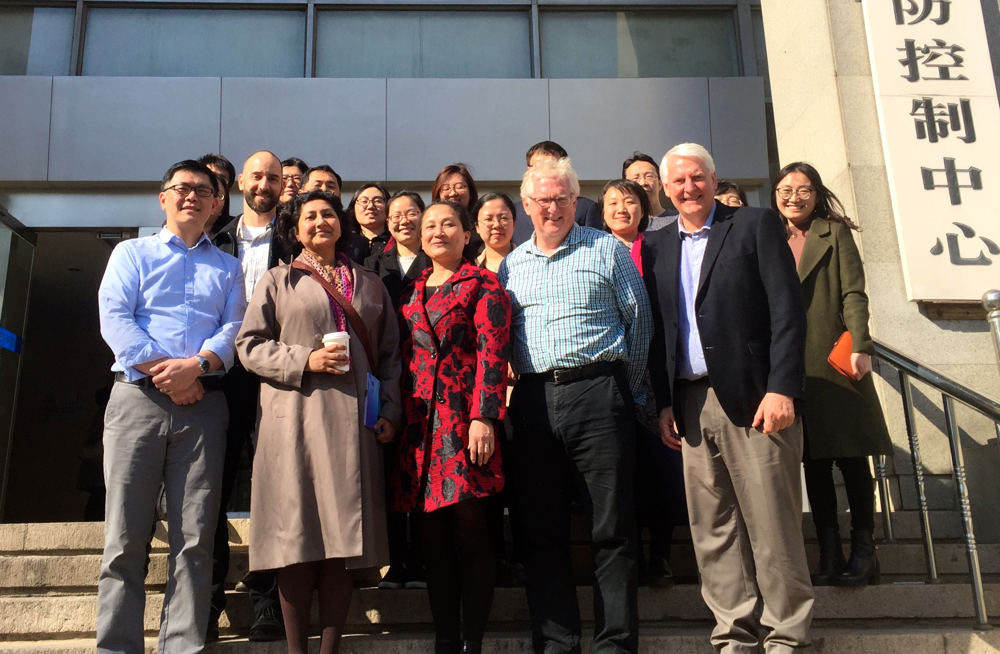2019 Conference
Blacksburg, Virginia, October 4, 2019

The goal of this conference was to connect VT faculty and students with researchers and officials from the Chinese Center for Disease Control and Prevention and UC Berkeley in order to share past/present/planned research relevant to low-income settings in rural Appalachia and China. The conference and attendant working sessions (held before and after) also served as a forum for officially expanding the previously named “Berkeley/China-CDC Program for Water & Health” to Virginia Tech, as well as a planning platform for new collaborative projects.
Opening remarks were given by Laura Hungerford, professor and department head of Population Health Sciences, and Tao Yong, the chief scientist at the National Center for Rural Water Supply Technical Guidance of the Chinese Center for Disease Control and Prevention and also the committee chairman of the Chinese Preventative Medicine Association’s Rural Drinking Water and Environment Professional Committee.
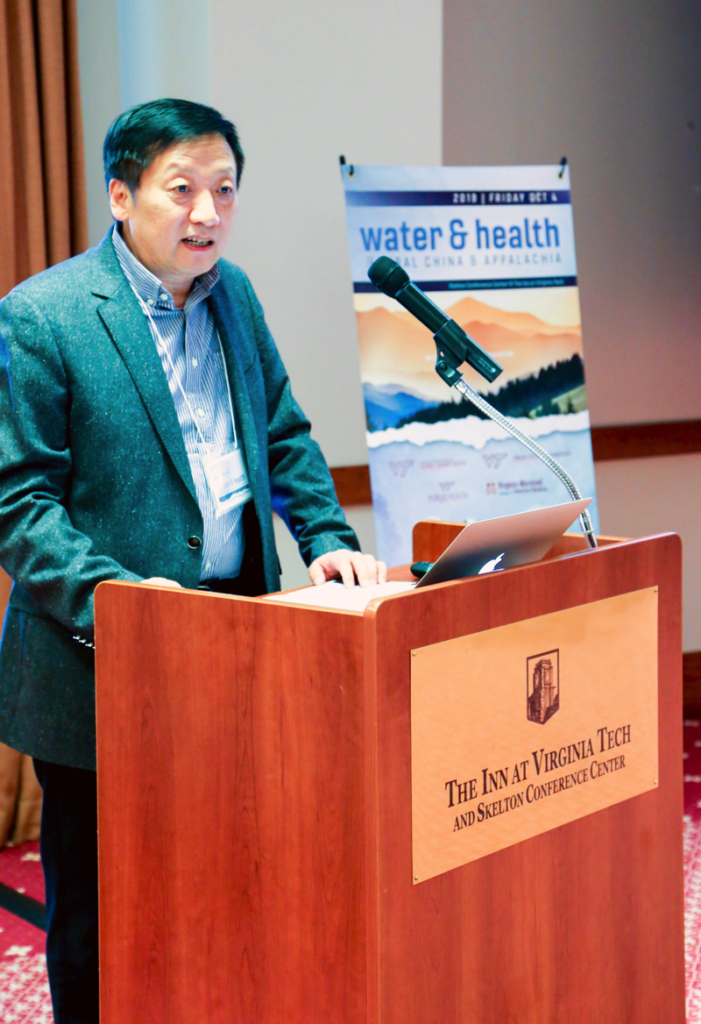
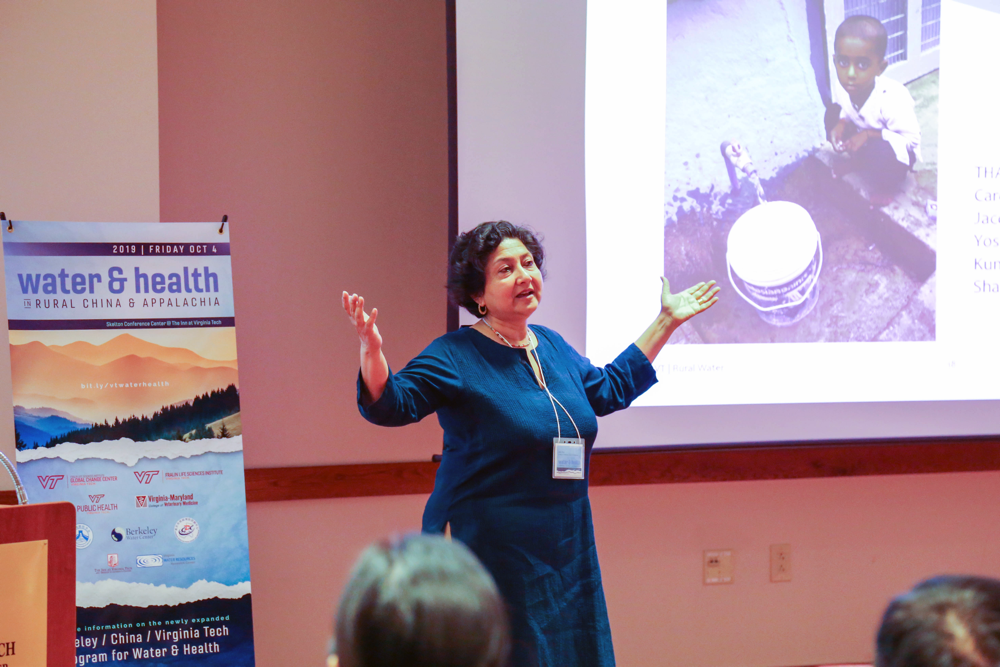
Among many other excellent talks, Prof. Isha Ray, co-director of the Berkeley Water Center and associate professor of water and development at UC Berkeley, discussed findings from her research on the challenges of access and accountability in the rural drinking systems of Mexico, Tanzania, India, and the United States.
At the end of the event, Profs Laura Hungerford and Alasdair Cohen at Virginia Tech signed a Memorandum of Understanding with Director Tao Yong at the China CDC and Prof. Isha Ray at UC Berkeley to mark the restructuring and expansion of their program to include Virginia Tech under its new name: The Berkeley / China / Virginia Tech Program for Water & Health.
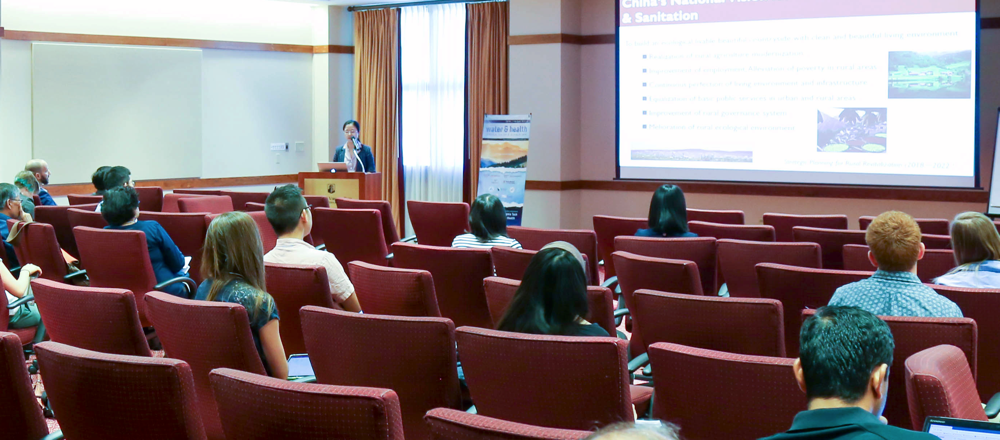
2018 Seminar
Beijing, March 26, 2018

2016 Conference
Beijing, March 22, 2016
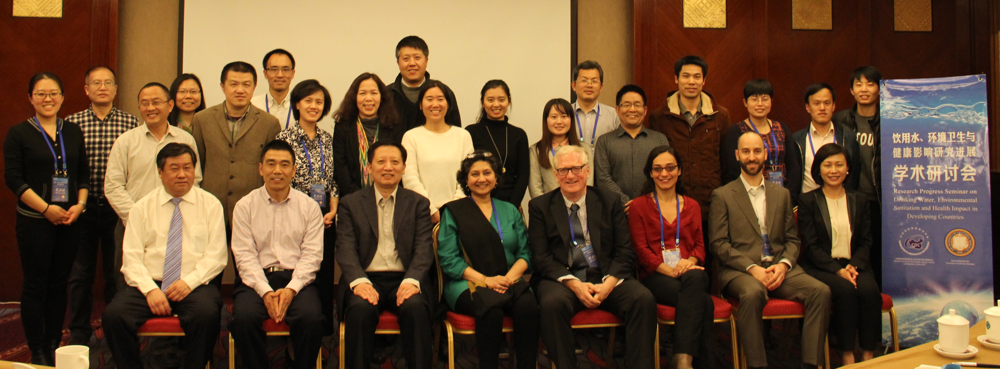
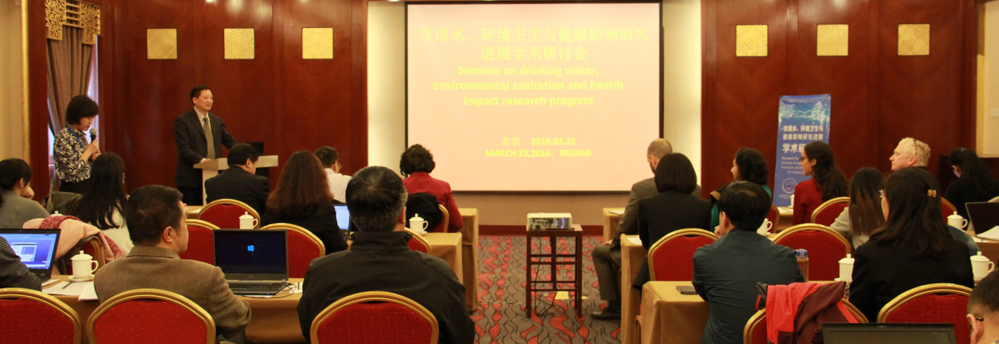
2015 Conference
UC Berkeley, September 3, 2015


Training Workshops
2017, March 28-30th, Beijing:
Training Workshop in Environmental Epidemiology and Field-based Research Methods

In March, 2017, Director Tao (pictured above), the NCRWSTG, and the China-CDC invited the UC Berkeley team to Beijing to lead a three-day “Training Workshop in Environmental Epidemiology and Field-based Research Methods”. More than 50 China CDC staff from more than 20 provinces traveled to Beijing to attend the workshop with the goal of expanding their knowledge of study design, sampling, field-based data collection, data analyses, and publication preparation. The Berkeley team consisted of Professors Isha Ray and Jack Colford, as well as Dr. Alasdair Cohen, Dr. Jade Benjamin-Chung, and Yoshika Crider.
Dr. Alasdair Cohen provided workshop attendees an introduction to Environmental Health and an overview of the primary Epidemiologic study designs with a focus on implications for causal inference. Cohen also presented on sample size calculations and sampling methods, as well as survey-based field research implementation and quality control. On the last day of the workshop, Cohen provided a training on study pre-registration, pre-analysis plans, and replication science.
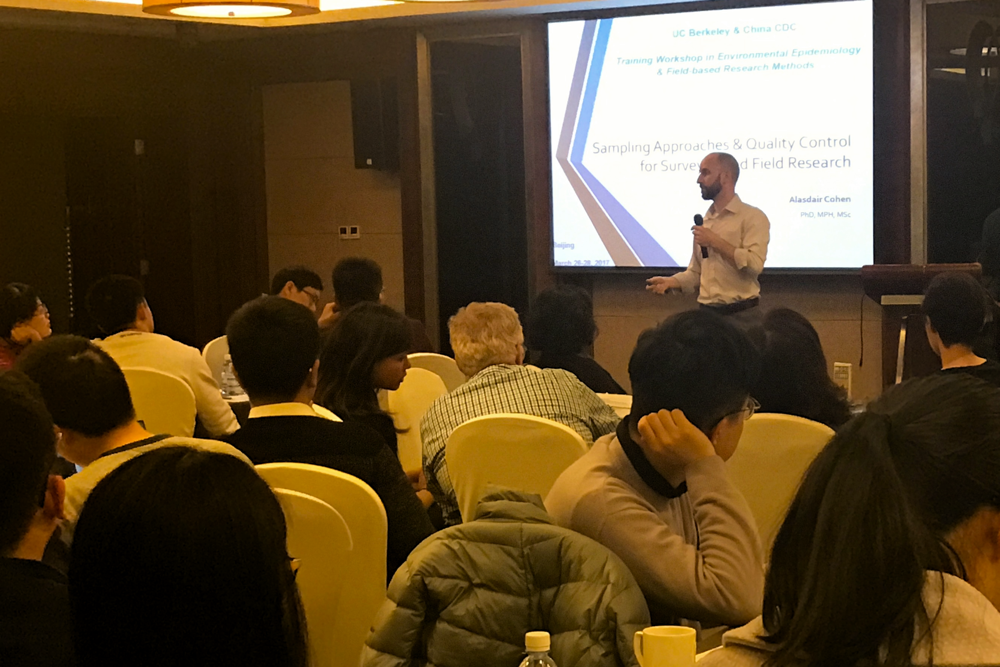
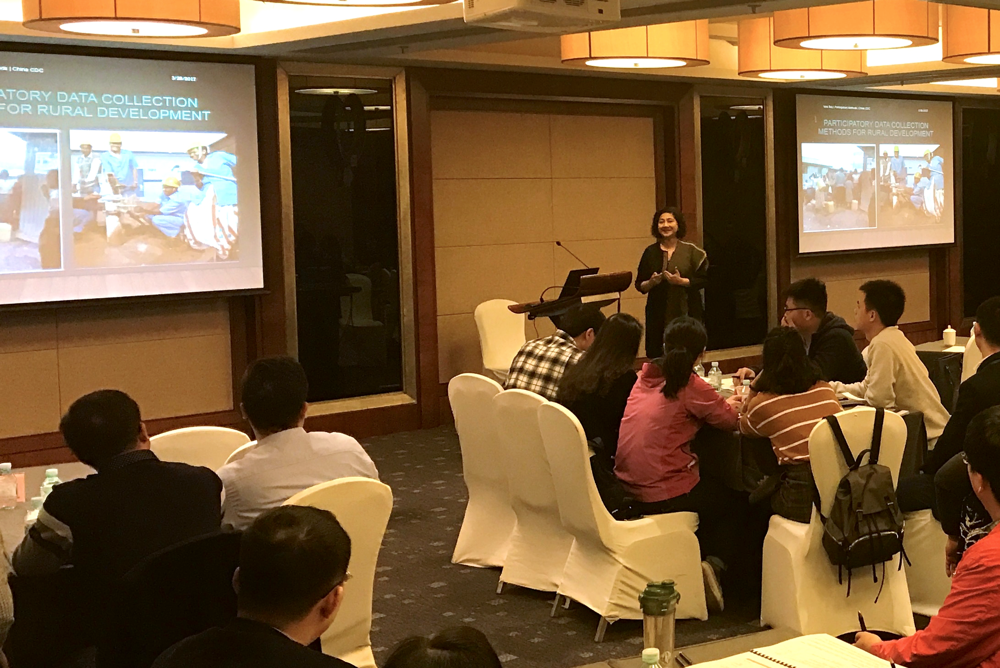
Professor Isha Ray used hands-on exercises as well as case studies and papers from her past work to provide workshop participants in-depth training sessions on participatory data collection methods and qualitative evaluation methods (including the use focus groups, willingness to pay assessments, and quasi-experimental methods). In response to requests from participants (concerning skills they felt they needed the most), on the last day of the workshop Prof. Ray also provided attendees a step-by-step training on publishing research in high-impact, English-language, journals.
Professor Jack Colford provided a detailed training session on the design and implementation of randomized controlled trials (RCT), using examples from two studies he and other colleagues worked on in Bolivia (a cluster-RCT) and Mexico (a stepped wedge RCT [in collaboration with Professor Isha Ray et al.]). Colford also presented examples of prospective and retrospective matched cohort studies in India. In addition, Professor Colford provided a training on sample size and power calculations for RCTs.
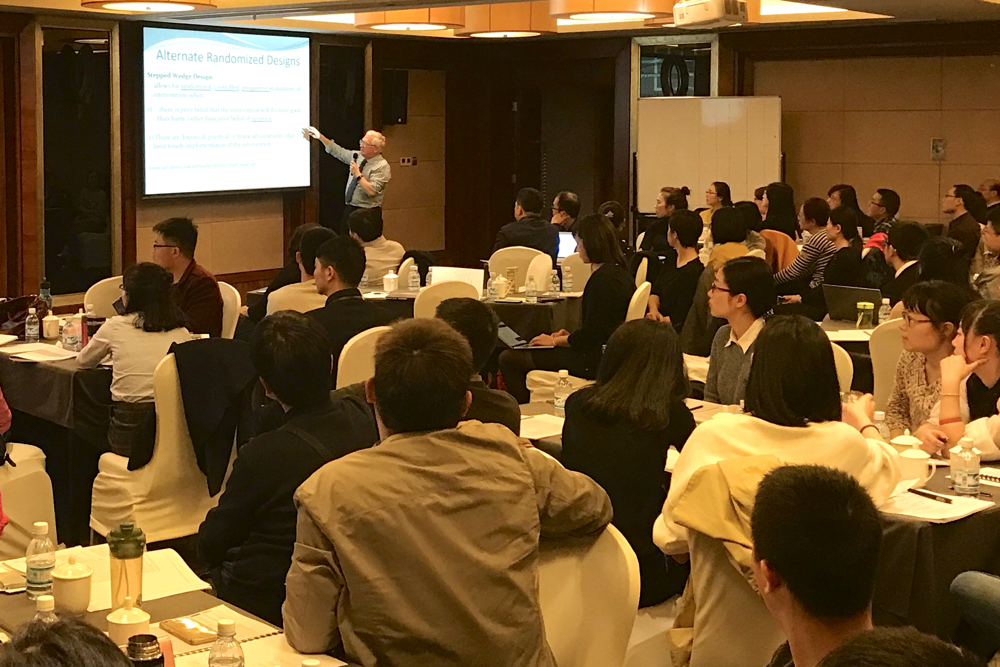
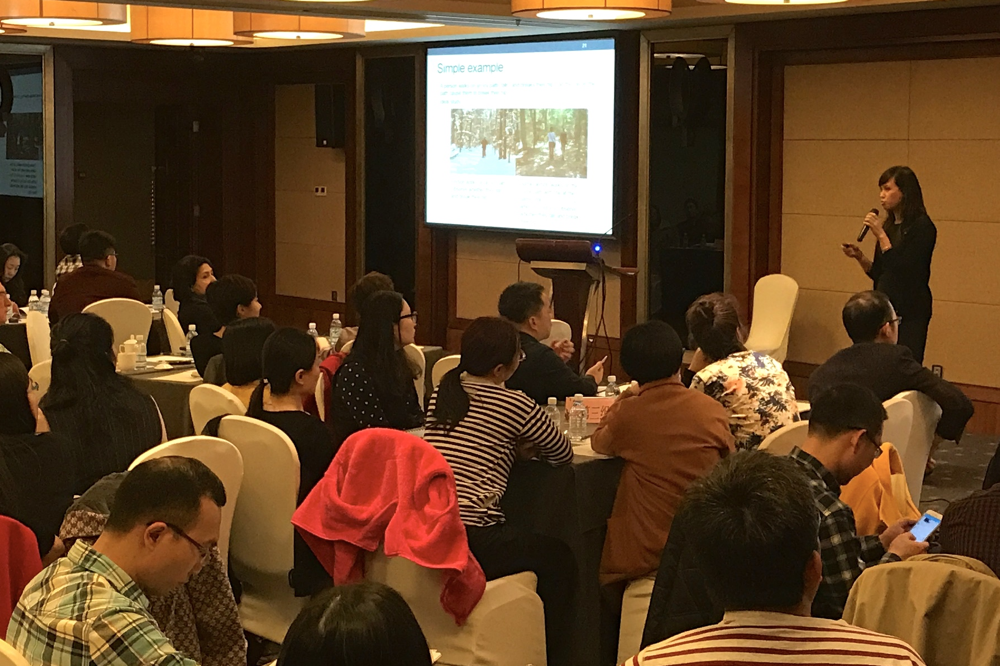
Dr. Jade Benjamin-Chung gave attendees a presentation on causal inference theory, including an introduction on the use of directed acyclic graphs. Benjamin-Chung also led a training session on spillover effects and drew from her recent research in this cutting-edge area to help participants better understand the importance of understanding spillover effects and how they can impact results interpretation. Dr. Benjamin-Chung also presented on sampling considerations for cluster-RCTs.
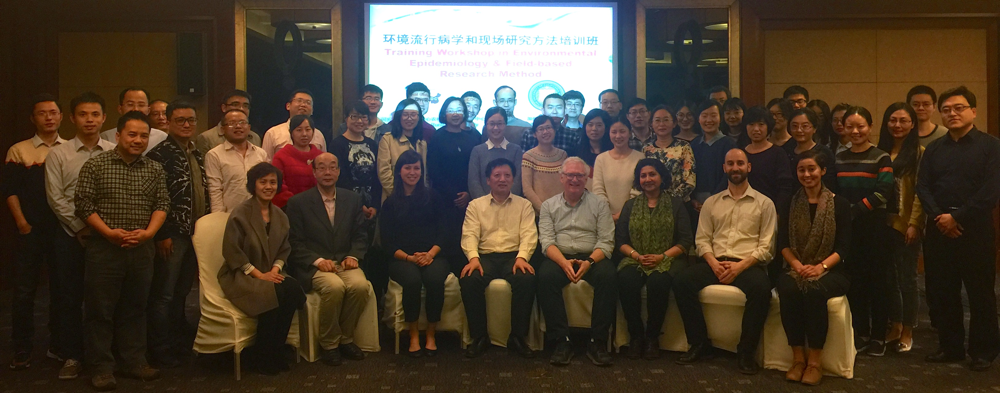
2017, March, Beijing: China CDC
Environmental and Occupational Epidemiology Training Program
Professors Isha Ray, Jack Colford, and Dr. Alasdair Cohen were invited to participate alongside two other international experts (Professors Malcolm Sim and Edmund Seto) in the China-CDC “Environmental and Occupational Epidemiology Training Program”. The Berkeley team met with a number of Chinese PhD students who were participating in the program/training and collaborating with China CDC agencies for their PhD research (e.g., the Institute for Environmental Health and Product Safety, the Institute for Occupational Health and Poison Control, and the Office for Public Health Management). The Berkeley team listed to student proposals and provided them technical feedback on their PhD research and analysis plans.
